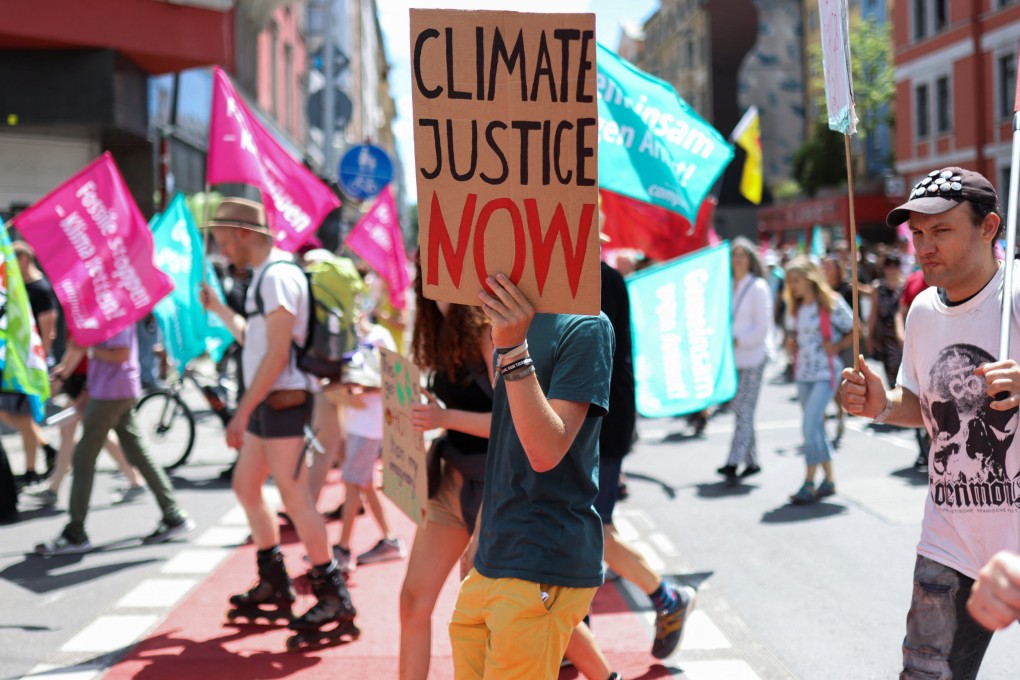Advertisement
Opinion | Amid heatwaves and floods, time is running out for rich nations to fulfil climate pledges and avert catastrophe
- The current pledges of financial and policy support are nowhere near enough to meet the goal of limiting global warming to 1.5 degrees
- Instead of protecting carbon-emitting industries, the world needs economic diversification and green jobs for a just, sustainable transition
Reading Time:4 minutes
Why you can trust SCMP
1

As host of the Group of 7 leaders’ meeting in the Bavarian Alps, German Chancellor Olaf Scholz underscored the importance of having a “climate club” for countries to come together in tackling climate change.
Protesters have been demonstrating in Munich and calling on the G7 economies to take greater action against climate change. According to the World Meteorological Organization, the past seven years have been the warmest on record. Global sea levels have continued to rise amid constant ocean heating and acidification.
Southern China has experienced record-breaking floods this month, and hundreds of thousands of people have been evacuated. In contrast, provinces in northern and central China are dealing with an extreme heatwave.
Advertisement
Exceptional temperatures have been observed across the globe, with brutal heatwaves in Europe. Similarly, Australia has witnessed extreme weather events, including storms, droughts, catastrophic bush fires, heatwaves and floods. Populations across parts of India and Bangladesh are facing intense floods and landslides, leaving more than 100 dead and multiple communities devastated.
Climate experts have warned that South Asia’s most exposed populations might have to live with more volatile and longer spells of destruction as patterns of monsoon and severe weather change become more the norm than an exception.
Advertisement
The Paris Agreement unified nearly all nations in agreeing to cut greenhouse gas emissions which are leading to global warming. At last year’s UN climate change conference, one crucial debate was about whether nations are actually fulfilling their commitments made in Paris.
Advertisement
Select Voice
Select Speed
1.00x
